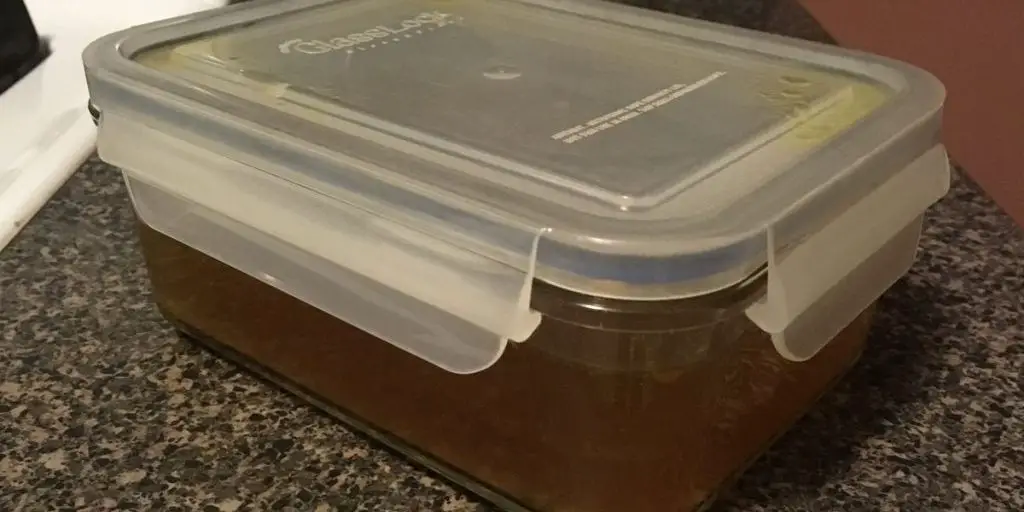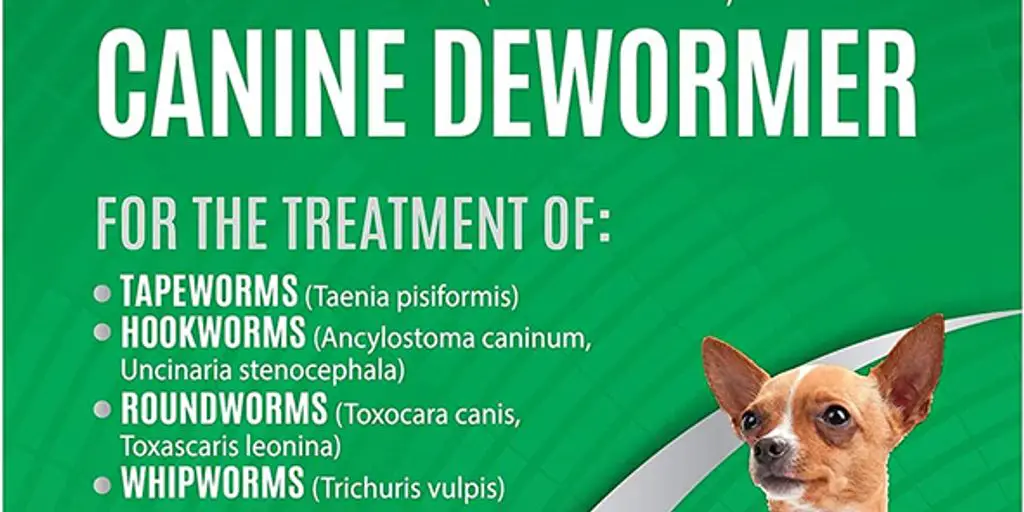Worm infestations in dogs are a common concern for pet owners. While conventional deworming drugs can be effective, they often come with potential side effects. Natural dewormers offer a safer, holistic alternative for maintaining your dog’s health. In this article, we’ll explore various natural remedies to help you eliminate dog worms effectively and safely.
Key Takeaways
- Understanding the different types of worms in dogs is crucial for effective treatment.
- Natural dewormers like pumpkin seeds, garlic, and apple cider vinegar can be both safe and effective.
- Regular cleaning and hygiene are essential to maintaining a worm-free environment for your dog.
- Consulting your vet is important, especially in cases of severe infestations or for puppies and pregnant dogs.
- Combining natural and conventional treatments can offer a balanced approach to deworming.
Understanding the Types of Worms in Dogs
When it comes to keeping our furry friends healthy, understanding the different types of worms that can infect dogs is crucial. Each type of worm has its own unique life cycle and can cause different symptoms in your dog. Some of these worms can even be transmitted to humans, so it’s important to know what you’re dealing with.
Roundworms
Roundworms are one of the most common types of worms in dogs. They are usually white or light brown and can grow several inches long. These worms are often found in the intestines and can cause a range of symptoms, from mild discomfort to severe illness.
Tapeworms
Tapeworms are another common type of worm that can infect dogs. These worms are flat and segmented, and they often show up in your dog’s stool. Tapeworms are usually contracted by ingesting fleas that carry the tapeworm larvae.
Hookworms
Hookworms are smaller than roundworms and tapeworms but can be just as harmful. These worms attach themselves to the lining of the intestines and feed on your dog’s blood, which can lead to anemia and other serious health issues.
Knowing the types of worms that can infect your dog is the first step in keeping them healthy and happy. Regular vet check-ups and preventive measures can go a long way in ensuring your dog stays worm-free.
Signs Your Dog Might Have Worms
If you’re wondering how to tell if your dog has worms, there are several signs to watch out for. Even if you don’t see any visible worms, your dog might still be infected. Here are some common symptoms to keep an eye on:
Visible Worms in Stool
One of the most obvious signs is finding worms in your dog’s stool. These can be whole worms or segments, and they might be moving. Finding microscopic intestinal worm eggs in the stool is also a common way to diagnose worms in dogs.
Weight Loss and Poor Coat Condition
If your dog is losing weight despite eating normally, it could be a sign of worms. Worms can steal nutrients from your dog’s food, leading to weight loss and a poor coat condition. You might notice that your dog’s fur looks dull and unhealthy.
Scooting and Itching
Dogs with worms often scoot their bottoms on the ground or lick and bite at their rear ends. This behavior is usually due to irritation caused by the worms. If you see your dog doing this frequently, it’s a good idea to check for other signs of worms.
If you notice any of these signs, it’s best to take your dog to the vet for a checkup. Early detection can make treatment much easier and more effective.
Why Choose Natural Dewormers?
Safety First
When it comes to our furry friends, safety is always a top priority. Natural dewormers are generally safer than their chemical counterparts. They are less likely to cause adverse reactions or side effects, making them a great option for dogs with sensitive systems.
Effectiveness of Natural Remedies
You might be surprised to learn that natural dewormers can be just as effective as traditional medications. Ingredients like pumpkin seeds, garlic, and apple cider vinegar create an environment in your dog’s digestive system that’s less hospitable to worms. This means you can eliminate dog worms without resorting to harsh chemicals.
Cost-Effectiveness
Let’s face it, vet bills can add up quickly. Natural dewormers are often more cost-effective than prescription medications. Many of these remedies use ingredients you probably already have in your kitchen, making it easier on your wallet while still keeping your dog healthy.
Natural dewormers offer a safer, effective, and more affordable way to keep your dog worm-free.
Pumpkin Seeds: A Tasty Dewormer
How Pumpkin Seeds Work
Pumpkin seeds are a fantastic natural dewormer for dogs. They contain an amino acid called cucurbitacin, which paralyzes intestinal worms. This makes it easier for your dog’s body to eliminate them. Plus, pumpkin seeds are generally safe for dogs to eat in moderation and are packed with nutrients like antioxidants, fatty acids, and minerals such as zinc.
Preparing Pumpkin Seeds for Your Dog
You can feed pumpkin seeds to your dog either whole or ground into a fine powder. Make sure to use raw, unsalted seeds. If you choose to grind them, you can easily mix the powder into your dog’s regular food.
Feeding Guidelines
The general recommendation is to give your dog one teaspoon of ground pumpkin seeds per 10 pounds of body weight. You can do this once or twice a day. Always start with a smaller amount to see how your dog reacts and consult your vet if you have any concerns.
Pumpkin seeds are not just a tasty treat; they are a powerful tool in keeping your dog worm-free.
The Power of Garlic

Benefits of Garlic
Garlic is a fantastic natural dewormer for dogs. When used in moderation, it can be just as effective as conventional dewormers. The amino acid allicin found in garlic is primarily responsible for its deworming properties. Allicin is released when garlic is chopped or crushed, making it a potent remedy against worms.
Proper Dosage
Getting the dosage right is crucial. Here’s a simple guide:
- Small dogs: Up to ¼ clove twice a day
- Medium dogs: Up to ½ clove twice a day
- Large dogs: Up to ¾ clove twice a day
- Giant breeds: Up to 1 clove twice a day
It’s important to let the chopped garlic sit for about 10 minutes before giving it to your dog. This waiting period allows the allicin to activate, making the garlic more effective.
Potential Risks
While garlic can be beneficial, it’s essential to use it cautiously. Avoid giving garlic to pregnant or lactating dogs, or if your dog is on blood thinners. Overuse can lead to toxicity, so always stick to the recommended dosage and consult your vet if you’re unsure.
Garlic can be a powerful ally in keeping your dog worm-free, but like all remedies, it should be used responsibly.
Using Carrots as a Natural Dewormer

Carrots are not just a crunchy snack for us; they can also be a fantastic natural dewormer for our furry friends. The fiber in carrots helps push out parasites from the digestive tract, making them a simple yet effective remedy. Plus, they are packed with vitamins and nutrients that boost your dog’s overall health.
How Carrots Help
Coarsely chopped carrots can help clear worm infections by scraping the intestinal lining during digestion. This process helps eliminate worms through the stool. If fed regularly, carrots can also help prevent future worm infections.
Incorporating Carrots into Your Dog’s Diet
Adding carrots to your dog’s diet is easy. You can serve them raw, chopped, or even cooked. Just make sure they are in bite-sized pieces to avoid choking hazards. Carrots can be mixed with their regular food or given as a treat.
Dosage Recommendations
For effective deworming, it’s generally recommended to give your dog a small amount of carrot daily. For example, a medium-sized dog can have about half a carrot per day. Adjust the amount based on your dog’s size and consult your vet for personalized advice.
While natural deworming offers a potentially gentler approach, it’s essential to exercise caution and research thoroughly before using any natural remedy.
Apple Cider Vinegar: A Versatile Remedy

Benefits of Apple Cider Vinegar
Apple cider vinegar (ACV) is a fantastic natural dewormer for dogs. It works by increasing the alkaline levels in your dog’s intestines, making it an inhospitable environment for parasites and worms. Adding a small amount of ACV to your dog’s water daily can help keep these pesky invaders at bay. Plus, you might notice an improvement in your dog’s coat condition and overall health.
How to Administer
Administering ACV is pretty straightforward. You can add it to your dog’s water or food. Here’s a simple guideline:
- Small dogs: 1/4 teaspoon per day
- Medium dogs: 1/2 teaspoon per day
- Large dogs: 1 teaspoon per day
Always start with a smaller dose to see how your dog reacts and consult your vet for personalized advice.
Precautions
While ACV is generally safe, it’s essential to use raw, organic, unfiltered vinegar for the best results. Also, monitor your dog for any adverse reactions, such as vomiting or diarrhea. If you notice any issues, discontinue use and consult your vet. Some enthusiasts recommend applying it directly to a dog’s skin to help soothe itchy hot spots, but if the skin is broken, dilute the vinegar with water to avoid irritation.
Remember, natural remedies can be a great addition to your dog’s health regimen, but they should not replace professional veterinary care. Always consult your vet before starting any new treatment.
Herbal Remedies: Cloves and Wormwood
Benefits of Cloves
Cloves have been used medicinally for centuries. They are known to treat a variety of conditions, including intestinal parasites like roundworms, giardia, coccidia, and tapeworms. Cloves act as a uterine stimulant, so avoid giving them to pregnant dogs.
Using Wormwood Safely
Wormwood is a powerful natural dewormer, but it can be harsh on your dog’s body. Always consult with your veterinarian before using wormwood, especially if your dog has liver or kidney issues. It’s also a good idea to provide liver support during treatment.
Combining Herbal Remedies
Combining cloves and wormwood can be effective, but it’s crucial to do so under veterinary guidance. This ensures that you’re using the right dosages and monitoring for any adverse effects.
When using herbal remedies, always prioritize your dog’s safety and consult with a vet to ensure the best care.
Maintaining a Worm-Free Environment
Keeping your dog’s environment clean is crucial to prevent worm infestations. Regular cleaning and hygiene practices can make a significant difference. Make sure to clean your dog’s living area frequently and dispose of waste properly. This helps in reducing the chances of worm eggs and larvae thriving in the environment.
Regular Cleaning and Hygiene
To maintain a worm-free environment, follow these steps:
- Pick up and dispose of your dog’s poop immediately.
- Clean your dog’s bedding and living area regularly.
- Wash your hands thoroughly after handling pet waste or interacting with your dog.
- Avoid letting your dog come into contact with dead wildlife or standing water.
Routine Vet Check-Ups
Regular vet check-ups are essential. Your vet can perform fecal tests to detect any worm infestations early. This makes treatment easier and more effective. Don’t skip these appointments, as they are vital for your dog’s health.
Preventative Measures
Incorporate natural dewormers like chopped carrots or ground pumpkin seeds into your dog’s diet periodically. This can help make your dog less appealing to worms. Also, keep your dog away from areas where they might pick up worms, such as places frequented by other animals.
When to Consult Your Vet
Severe Infestations
If your dog’s worm infection is severe, causing visible signs of illness, it’s time to consult your vet. You should call the vet immediately if your dog is frequently vomiting or vomits blood. Other changes to notice include worms, blood, or mucus present in the stool. These symptoms indicate that the infestation is beyond what natural remedies can handle.
Puppies and Pregnant Dogs
Puppies and pregnant dogs are particularly vulnerable to worm infestations. Their immune systems are not as robust, making it crucial to seek veterinary advice. Your vet can recommend safe and effective treatments tailored to their specific needs.
Combining Natural and Conventional Treatments
Sometimes, natural remedies alone may not be enough. In such cases, combining natural and conventional treatments can be effective. Always consult your vet before mixing treatments to ensure they are safe and will not interact negatively with each other.
When in doubt, it’s always better to consult your vet to ensure your furry friend’s health and well-being.
Conclusion
Taking care of your dog’s health is a top priority, and using natural dewormers can be a safe and effective way to keep those pesky worms at bay. From pumpkin seeds to herbal remedies, there are plenty of options to choose from. Just remember to follow the instructions carefully and continue the treatment for at least two weeks to ensure all the worms are gone. With a little effort and the right natural remedies, you can keep your furry friend happy, healthy, and worm-free!
Frequently Asked Questions
What are the common types of worms that affect dogs?
The most common types of worms that affect dogs are roundworms, tapeworms, and hookworms.
What are the signs that my dog might have worms?
Signs that your dog might have worms include visible worms in stool, weight loss, poor coat condition, scooting, and itching.
Why should I choose natural dewormers over conventional ones?
Natural dewormers are often safer, effective, and more cost-effective compared to conventional deworming drugs, which can carry nasty side effects.
How do pumpkin seeds work as a natural dewormer?
Pumpkin seeds contain an amino acid called cucurbitacin, which paralyzes and eliminates worms from your dog’s digestive tract.
Is garlic safe for deworming my dog?
Garlic can be used as a natural dewormer in proper dosages, but it is essential to consult with your vet as excessive amounts can be toxic to dogs.
Can apple cider vinegar help in deworming my dog?
Yes, apple cider vinegar can create an environment in your dog’s intestines that is inhospitable to worms, thus helping in deworming.
How often should I use natural dewormers on my dog?
It’s recommended to follow the specific guidelines for each natural dewormer and continue treatment for at least two weeks to ensure all worms are eliminated.
When should I consult my vet regarding my dog’s worm infestation?
You should consult your vet if your dog has a severe infestation, if the dog is a puppy or pregnant, or if you are considering combining natural and conventional treatments.



